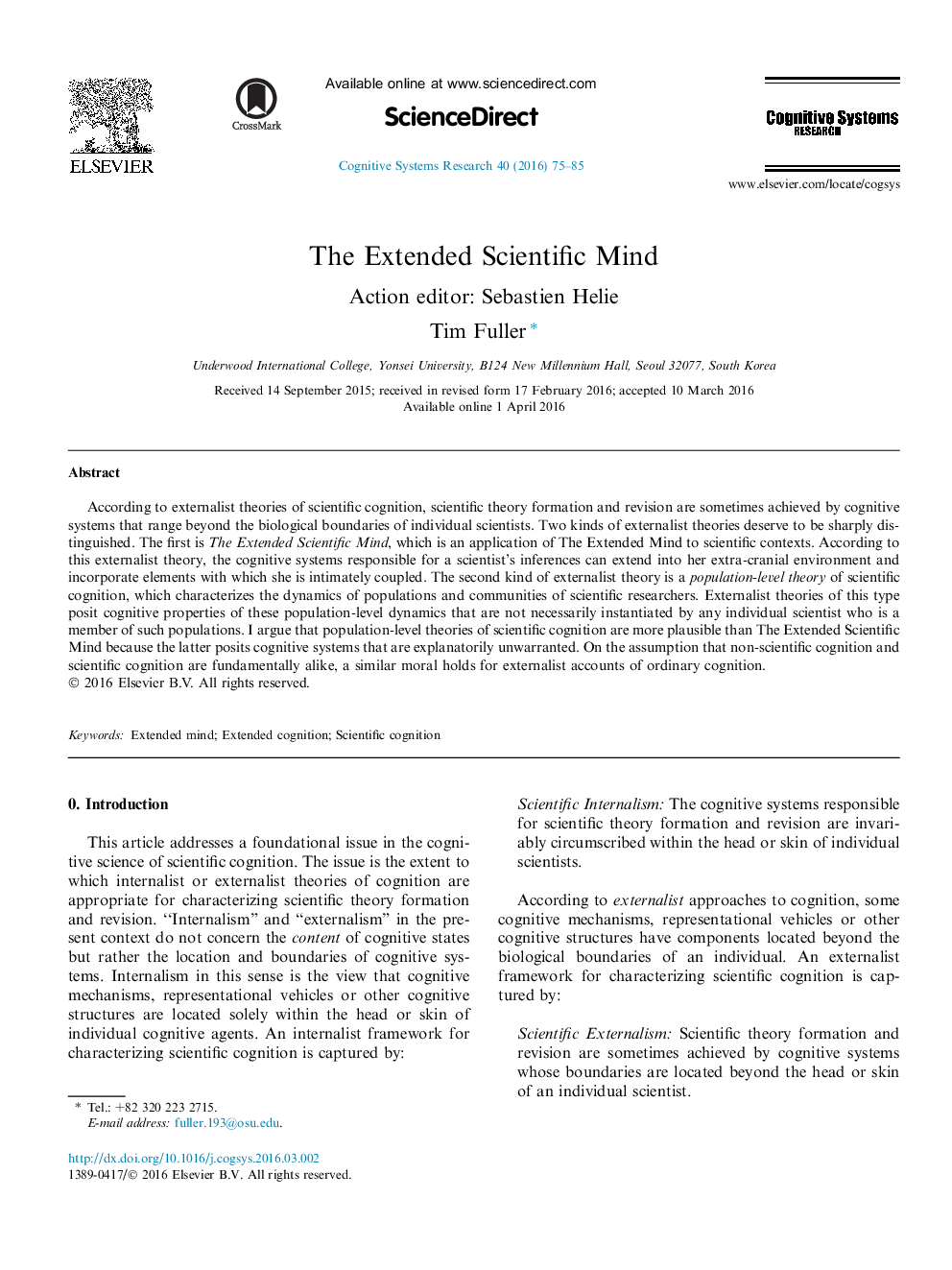| Article ID | Journal | Published Year | Pages | File Type |
|---|---|---|---|---|
| 378352 | Cognitive Systems Research | 2016 | 11 Pages |
According to externalist theories of scientific cognition, scientific theory formation and revision are sometimes achieved by cognitive systems that range beyond the biological boundaries of individual scientists. Two kinds of externalist theories deserve to be sharply distinguished. The first is The Extended Scientific Mind, which is an application of The Extended Mind to scientific contexts. According to this externalist theory, the cognitive systems responsible for a scientist’s inferences can extend into her extra-cranial environment and incorporate elements with which she is intimately coupled. The second kind of externalist theory is a population-level theory of scientific cognition, which characterizes the dynamics of populations and communities of scientific researchers. Externalist theories of this type posit cognitive properties of these population-level dynamics that are not necessarily instantiated by any individual scientist who is a member of such populations. I argue that population-level theories of scientific cognition are more plausible than The Extended Scientific Mind because the latter posits cognitive systems that are explanatorily unwarranted. On the assumption that non-scientific cognition and scientific cognition are fundamentally alike, a similar moral holds for externalist accounts of ordinary cognition.
